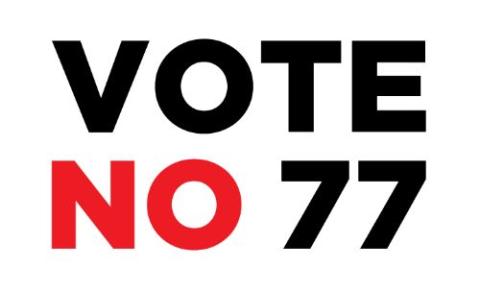In the midst of all the national attention to the immigration crisis, voters in our Nation’s Capital went to the polls on Tuesday to vote on an initiative to eliminate the tipping exemption and raise the minimum wage to $15 over time for all workers. Regardless of your particular position on Initiative 77, there are lessons to be gleaned from Tuesday’s results that saw it pass overwhelmingly throughout the city. The ten-percentage point spread was not close – it was a landslide in politics.
On one side was a New York-based labor rights group called the Restaurant Opportunities Center that imported the proposal and spent over a quarter of a million dollars advocating for it. The local DC restaurant association organized a #SaveOurTips “NO on 77” campaign that was championed by grassroots members of the community who work in bars and restaurants in a geographically focused area that is the hub of new development and dynamic restaurants and nightlife for both locals and suburban workers. All local politicians were opposed.
Stunning Results
Washingtonians woke up Wednesday morning shocked that not only had the NO campaign lost, but also it lost even in these centers of development where there is evidence that restaurant and bar workers make much, much more than minimum wage.
Most interesting were the results in Ward One (DC is split into 8 Wards). The initiative won by a larger margin there than the overall citywide vote. This area, one of the hubs of the overall dynamism referenced above was a natural constituency for the “NO” campaign. The Ward 2 (Downtown business district) vote total is so close it will likely be decided with absentee ballots.
A more dynamic get out the vote effort would not have made up the difference for the NO campaign and the City Council has the ability to override, but won’t due to never resolved issues regarding gentrification. The National Restaurant Association is unlikely to have the clout on Capitol Hill to advocate for a Congressional override during the mandatory review period.
Gentrification Vs Legacy Residents Need Recognition
So what does this mean going forward? First, Restaurants Opportunities Center will likely take this big win and deploy the same strategy over time around the country starting with more liberal cities/states. The NO crowd should start getting organized at a national level if they hope to avoid similar outcomes in the very near future.
Most striking though is the now obvious fact that in many of our large cities, we actually have communities living in very different realities. These new or revitalized areas thriving with growth, opportunity and new young residents have significant legacy populations that are not a part of the success they and the outside world see around them.
The obvious analogy is to the mid-west states left behind during America’s economic rebound that ushered in the Trump electoral win. If the same level of frustration hits our newly revitalized cities as took hold in our rural areas in 2016, there could be real, lasting electoral consequences for years to come.
